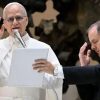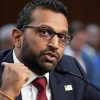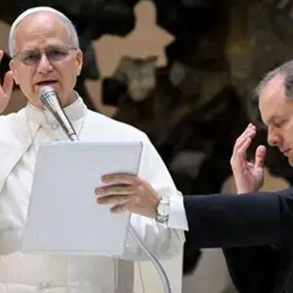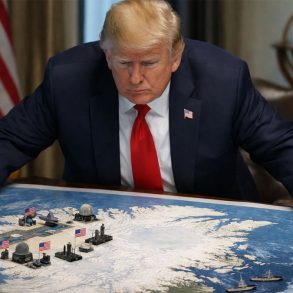The Trump administration has officially shut down the Transportation Security Administration’s (TSA) Quiet Skies program. The program allowed undercover federal air marshals to follow American citizens on domestic and international flights, even if those travelers were not suspected of any crime. Homeland Security Secretary Kristi Noem announced the program’s end last Thursday, describing it as a waste of taxpayer money and a serious abuse of power that should never have been allowed in the first place.
What Quiet Skies Was Meant to Be
Quiet Skies was launched in 2010 during the Obama administration as a counterterrorism program. It was designed to help air marshals identify and monitor passengers who might pose a threat to aviation security because of their connections with known or suspected terrorists. Even if those travelers themselves were not on any watchlist or under investigation, they could still be tracked whenever they boarded a plane. According to a 2018 investigation by the Boston Globe, federal air marshals followed around 35 of these flagged passengers every day.
How the Program Went Off Course
Although Quiet Skies was created to protect national security, it quickly became clear that the program was not living up to its purpose. According to Homeland Security, it was costing American taxpayers $200 million every year but failed to stop any terrorist attacks. As Kristi Noem stated in a video message on X, “The program, under the guise of ‘national security,’ was used to target political opponents and benefit political allies of the Biden Administration.”
Former air marshal and whistleblower Robert MacLean described the program’s major flaw: “They were randomly picking people to justify the existence of this program.” A 2020 inspector general report found that the TSA did not “properly plan, implement, and manage” the program. This lack of oversight created the perfect conditions for the program to be misused.
Political Targeting and Personal Stories
One of the most troubling parts of the Quiet Skies scandal was the targeting of political figures like Tulsi Gabbard, who was placed on the watchlist in 2024. Gabbard, a former Democratic congresswoman and current Director of National Intelligence, said in an interview on Fox News, “I think they were trying to intimidate me, but also, they were trying to really create this chilling effect, probably knowing that I wouldn’t stay silent about it.” She added, “My real question is, what don’t I know? This is the real pain and stress that’s been caused both to me and my family.”
In another case, Billy Shaheen, the husband of Senator Jeanne Shaheen of New Hampshire, was flagged by the program after traveling three times with a known or suspected terrorist. His wife reportedly contacted TSA officials after her husband faced “several extensive, invasive and degrading searches at airport checkpoints,” according to a spokesperson. Eventually, William Shaheen was removed from the watchlist, but other Americans, including Gabbard, were left without any explanation or relief.
Kristi Noem said this misuse of surveillance was “a political rolodex of the Biden administration.” She added that her department would continue to identify individuals who did not fulfill TSA’s mission and would make sure the agency returned to its main job of keeping travelers safe, not spying on them.
Investigations and Fallout
The Trump administration’s move to shut down Quiet Skies did not stop with a simple announcement. Corey Lewandowski, a special government employee at Homeland Security, confronted TSA leadership about the program’s political abuses. According to multiple sources, he demanded to know who was responsible for putting Tulsi Gabbard on the list. TSA executive Stacey Fitzmaurice took responsibility and was placed on leave, escorted from the building soon after.
Homeland Security is also pushing for a full congressional investigation into how the program was abused. Noem stated, “I am calling for a full and thorough Congressional investigation to uncover further corruption through this program.” She also promised that while the program would no longer exist, TSA would continue to vet travelers to ensure genuine security threats were stopped, without compromising the privacy and rights of ordinary citizens.
Civil liberties advocates have long warned about the dangers of programs like Quiet Skies. Senator Rand Paul of Kentucky said during a Senate hearing in May, “With regard to TSA Quiet Skies and the Tulsi Gabbard situation, I suspect there are going to be other people that were caught up in this thing as well. I’m horrified by the idea, that we took a former congresswoman and we’re surveilling her and riding on jets with her.”
He added, “I want to hear that people have been let go, that they’re no longer doing this. If there were abuses of Tulsi Gabbard’s liberties, I want to hear from that. But I want repercussions to come from this.”
Gabbard has also pointed out that her experience is not an isolated incident. She told Matt Taibbi of Racket News that she and her husband were subjected to “random” airport searches lasting up to 45 minutes every time they flew. Their boarding passes were repeatedly marked with “SSSS,” which stands for Secondary Security Screening Selection, a designation typically reserved for people considered threats to aviation security.
With the end of Quiet Skies, the Trump administration is trying to steer the TSA back to its original mission. Kristi Noem said, “The Trump Administration will return TSA to its true mission of being laser-focused on the safety and security of the traveling public. This includes restoring the integrity, privacy, and equal application of the law for all Americans.”
NP Editor: We are of the opinion that this and many other laws that allow surveillance of U.S. citizens should be ended. It is not the job of the U.S. government to surveill its citizens.
In fact, I believe we should end all identification required for flying. TSA’s job is to ensure that prevent people from bringing weapons on board aircraft. If this is done efficiently, the privacy of travelers can be restored without risk. If if can’t be done, then TSA is relatively useless.







